Bronwyn T. Williams, Director
Twelve years ago, in my first year as director, we held our first Dissertation Writing Retreat. Every May since then we have brought together a group of 14 doctoral students from across the University for a week of writing time, individual consultations, conversations about writing – and food. We even did it online during the worst of the pandemic. We just finished our most recent Retreat, my last as director of the University Writing Center, and had writers from nine different disciplines participating. As you’ll see from their words below, it was a reminder, yet again, of why this is such a rewarding and productive experience for everyone involved and why it is the distinctive kind of work that University Writing Center provides to the University.
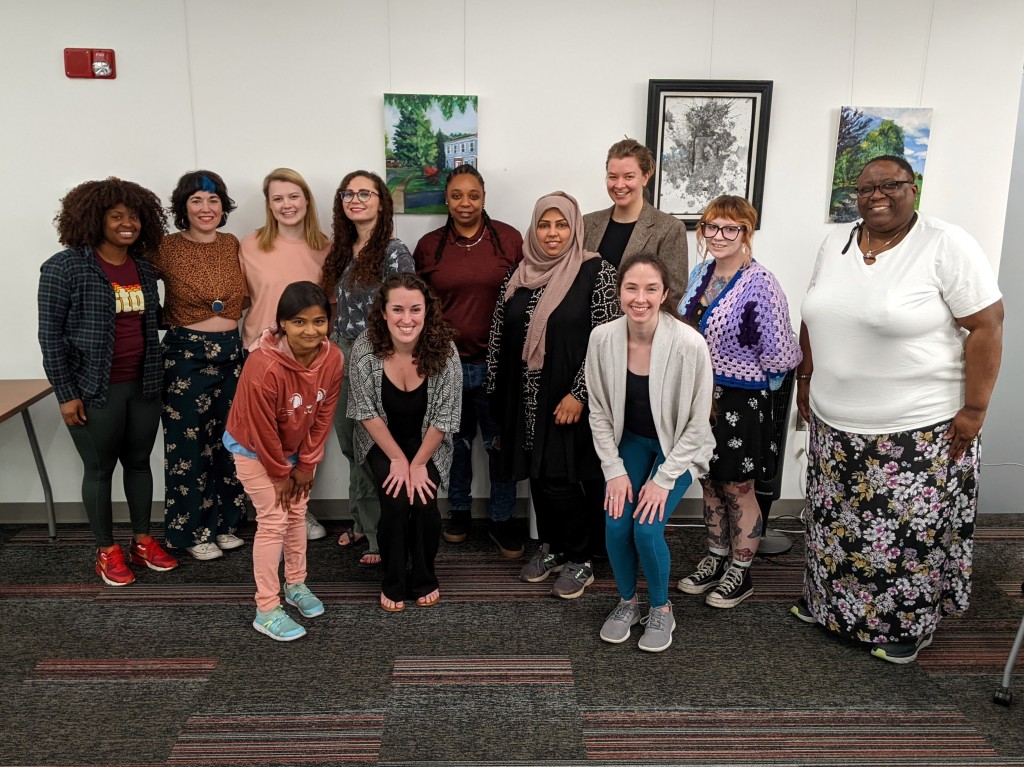
When the writers arrive at the first day of the Retreat they are often not entirely sure what to expect. Yes, they know they will write – a lot – and have individual writing consultations with a University Writing Center consultant, and take part in conversations led by our staff about dissertation writing issues. They are often hoping to get a lot written during the week, and that does happen. But what they are not always prepared for is how much they will learn about themselves as writers and scholars. Most of the people coming to the Retreat have not, during their time in graduate school, had a chance to have sustained conversations about the nature of writing as a researcher and scholar. Yet such conversations, about how they are positioning themselves in their fields, how they are understanding genres of research writing and making them their own, and how they are understanding and refining their writing processes, can provide them with both knowledge and confidence that allows them to find new momentum going forward with their projects. What we know is that, while getting words written during the week matters, the most important things we can offer are advice and insights that they can take with them as writers.
The idea that we are working on more than just on the draft a writer has with them at the moment, but trying to help them become stronger, and more confident, writers in the future is central to the work of most writing centers. What is different about the Dissertation Writing Retreat from our regular consultations is that the nature of the Retreat, of spending each days writing and talking with others, is also an opportunity for ongoing reflection and community building that is rewarding in every way. What I wrote in 2011 about the first Retreat was equally applicable to this year:
“There was the benefit of being part of a community of writers. Writing a dissertation – writing anything, really – can feel like such an isolated and lonely endeavor. This week all the participants in the retreat found themselves in a community of writers. They’ve talked about the benefit of the support that comes from talking with peers about writing issues and getting both suggestions as well as empathy. They found that talking, and often laughing, about writing, even when your field is far removed from writing studies, can be enriching. And they also found that simply being in a room with other people writing can inspire them to continue to create words.”
One of our ongoing goals at the University Writing Center is to nurture and support a culture of writing on campus, and the Dissertation Writing Retreat is a vital part of that effort. I want to thank all the writers who trusted us with their writing, all the consultants who brought their insights and enthusiasm to their work with the writers, and our amazing University Writing Center staff — Annmarie Steffes, Maddy Decker, and Kendyl Harmeling — who did the heavy planning and daily logistical work to make the event happen.
But, the best insights into the Dissertation Writing Retreat come from the writers and the consultants, and here is what they have to say. You can see why it’s one of our favorite weeks of the year.
Writers
Fatima Aldarweesh, Public Health
Participating in the “Dissertation Writing Treat” event was a truly enjoyable and productive experience. It is extremely beneficial to me; I received more than I expected. I appreciated how Dr. Bronwyn and his incredible team collaborated with us to form a supportive intellectual group; I enjoyed the small group discussions. They have influenced my productivity and helped me overcome feelings of isolation. I also appreciate Ms. Aubrie, my writing consultant, for taking the time to familiarize herself with my topic and assisting me with editing, revising, and proofreading even kept me accountable for my writing each day and inspired me to try new writing techniques.
Caitlin Allen – Rhetoric and Composition
The Dissertation Writing Retreat was an incredibly valuable experience. The Writing Center team and the rest of my retreat cohort created such an energizing and supportive environment. Working with a writing consultant every afternoon was especially useful; Christina provided wonderful and thoughtful feedback on my drafts, helped me talk through ideas, and celebrated my wins. At the end of the week, I felt much more confident in my dissertation project and my writing process. I strongly recommend the writing retreat to dissertation writers from any discipline across campus.
Meaghan Flynn – Psychology
I learned so much about myself as a writer and the writing experience during the dissertation writing retreat. I had never given much thought to the different aspects of writing and the retreat was a wonderful opportunity to explore my writing habits and how I can practice engaging in both deep thinking and communicating about my deep thinking. I greatly appreciated the individual writing consultations throughout the week. This was an excellent challenge to think deeply about what aspects of writing I was struggling with and how to communicate those needs. I am very grateful to have had this opportunity and would absolutely recommend the retreat to any graduate student for their dissertation.
Hannah Heitz – Education and Human Development
The retreat was immensely helpful! First, it provided me with a lot of motivation and helped me feel energized about the writing process. Second, it reminded me to use small goals to make progress when I’m feeling overwhelmed. Third, I was reminded that it’s ok to write badly—this opened the door for me to make great strides and avoid perfectionistic traps. I learned some other specific tools for revising and time management (I took many notes that I’ll be coming back to in the months and years to come).
Amanda Lacey – Education and Human Development
The Dissertation Writing Retreat has by far been one of the most helpful and empowering experiences of my doctoral journey. While I was extremely nervous (almost panicked!) coming in, convinced I’d spend the majority of the time helplessly staring at a blinking cursor at my screen, I instead wound up making significant progress on both my writing and my outline for future chapters. I credit this success to the structure of the retreat: each day has a pre-set schedule that includes not only individual writing time, but also group discussions on various writing strategies, an hour-long appointment with a writing consultant, and plenty of opportunities to reflect. Even the break for lunch proved to be productive, as all of us attendees spent the time getting to know each other and share ideas and strategies across content areas. We even created a special Teams channel after the retreat so we can all keep in touch and keep each other accountable. In short, this writing retreat is not merely writing non-stop for 8 hours a day; instead, it’s writing sprints mixed in with opportunities to acquire new strategies, build productive writing habits, and form a strong community of colleagues that will help you get to the end of your doctoral journey — and beyond. Indeed, through this process, I was able to complete more writing in the course of a single week than I did in the previous six months. Now that the week is over, I feel re-energized and ready to tackle the rest of my dissertation. I am so grateful to have had this opportunity and would recommend it to any doctoral student from any discipline that needs that little extra push to get across the finish line.
Renee Richardson – Pan-African Studies
I gained helpful strategies from my consultant, Olalekan. His advice about the writing process allowed me to craft research questions, themes, and topics for each chapter of my dissertation. Focused research question and themes helped me to develop key terms for finding better articles and books tailored to my literature review. Also, the discussions were valuable. I was able to gain insight from other students and professionals about responding to committee feedback, maintaining discipline and momentum after the retreat, and literature review tips. Discussion leaders like Kendyl shared resources with us that I can refer back to as I complete my project. Kendyl also suggested using a Double Entry Journal which I set up during the retreat.
Consultants
Kendyl Harmeling, Assistant Director for Graduate Student Writing
This year’s Dissertation Writing Retreat was exactly that – a retreat. It’s a writing professional’s dream to work at such an event, where the sustained writing, writing discussion, and community building is fueled by (and fuels) passionate and hard-working writers across disciplines. To be in a room of writers writing is undeniably a privilege. As an assistant director of the University Writing Center, this was my first year helping to run discussions and days of the DWR and my second year as a consultant for our participating writers. The conversations we had all week about individual projects, the genre of the dissertation, and the writing process in general were maintained and tended to constantly in writing consultations, whole group discussions, and even on the walks back to the parking lots after a day’s end. Our participating writers and the energy they brought to the retreat this year are a reminder why these programs are so valuable – not just to each writer but to the University and the PhD process. They help us help each other.
Olalekan Adepoju
Having worked with writers at the dissertation writing retreat for three consecutive years, this year’s retreat was not short of the intrigues, excitement and motivation writers often exhibited throughout the five-day event. The most rewarding aspect of the retreat for me is learning about the incredible projects people are working on, and just generally experiencing the sheer joy with which these writers talk about their projects. This year, I had the opportunity to work with writers who are at different stages of their dissertation. While one was in the early stages, working on conceptualizing and framing the research questions and ideas for literature review, the other was working through their drafts to make connections across multiple drafts. For the writers, the efforts they put into their work are remarkable as those efforts helped to drive our conversations in a way that suits their needs throughout the retreat. At the end of the dissertation writing retreat, both writers affirmed to me that they now have an awareness of what their writing processes look like and a better understanding of how to apply writing concepts in their work.
Christina Davidson
While I spent the last year working in the University Writing Center, this was my first opportunity to work with writers during the Dissertation Writing Retreat. It was a delight. As expected, I was deeply encouraged by the determination and community-building among the writers throughout the week. The two writers I worked with specifically expressed similar thoughts. In fact, one of the writers I assisted called this retreat a “reset button” and said it restored her focus on her dissertation project. Many writers expressed feeling as though the retreat helped them to finally assume their scholarly authority through writing. They claimed the workshops and consulting sessions were the difference-maker in shaping how they viewed their writing project. What I noticed was the incredible attention to care the staff at the UWC gave toward helping these writers succeed. It’s an incredible service offered to the UofL graduate student community. I highly recommend this retreat to any PhD student at UofL looking for guidance, planning, and support in the dissertation process.
Jess Gottbrath
My experience at this year’s Dissertation Writing Retreat fostered an appreciation for the interdisciplinary nature of academia. Engaging in casual conversations and writing consultations exposed me to an array of research topics, methods, and perspectives. I learned about specific classes in other departments as well as overall programs of study quite different from what I have known in the world of Rhetoric & Composition. Despite these variations across content and coursework and committees, I sensed the connectedness in our pursuits. While we construct knowledge from diverse positions within the university, our collective work enables a complex understanding of the multifaceted issues in our society.

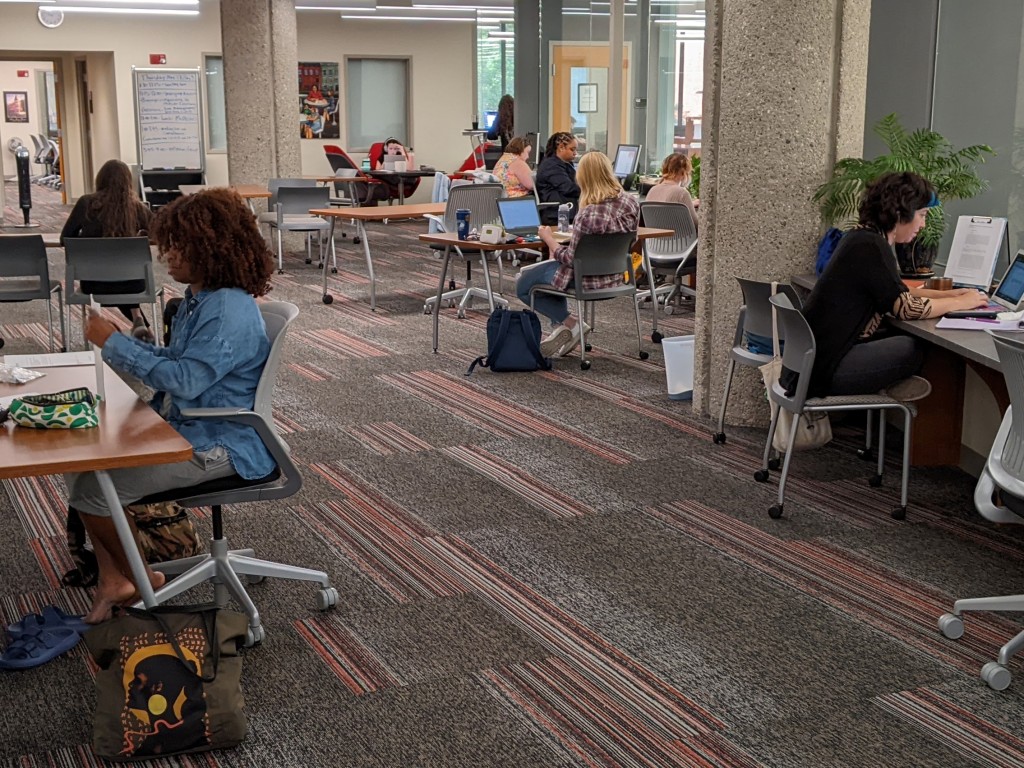

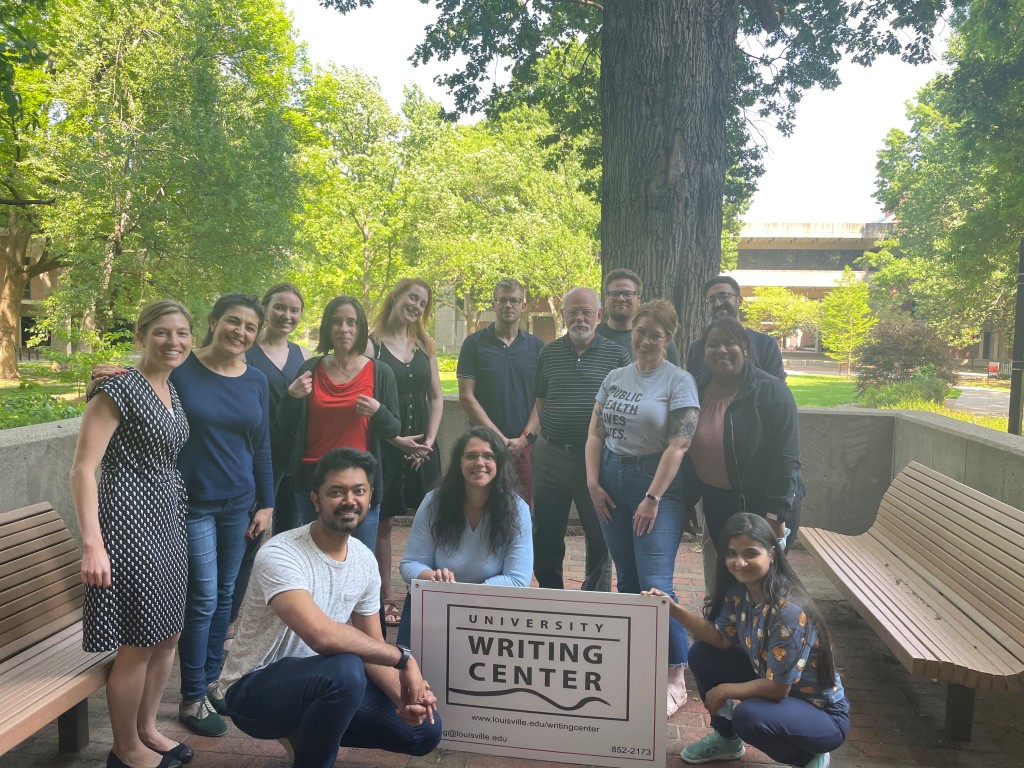


 from other research for evidence, ideas, as well as to establish your credibility. Our videos on how to use sources in your writing can help you with
from other research for evidence, ideas, as well as to establish your credibility. Our videos on how to use sources in your writing can help you with  take a look at our Writing FAQ on
take a look at our Writing FAQ on 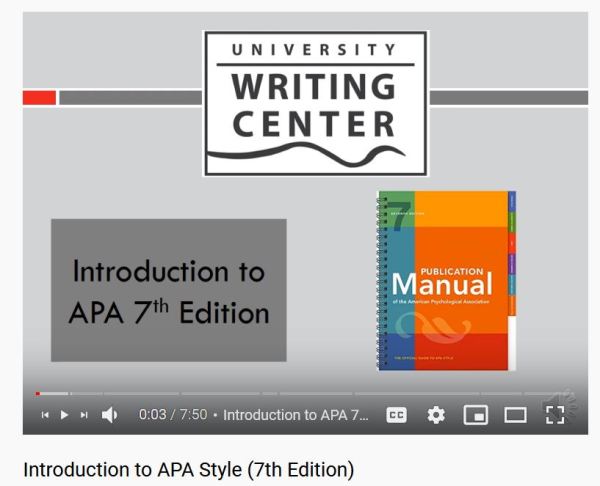 right, take look at our
right, take look at our 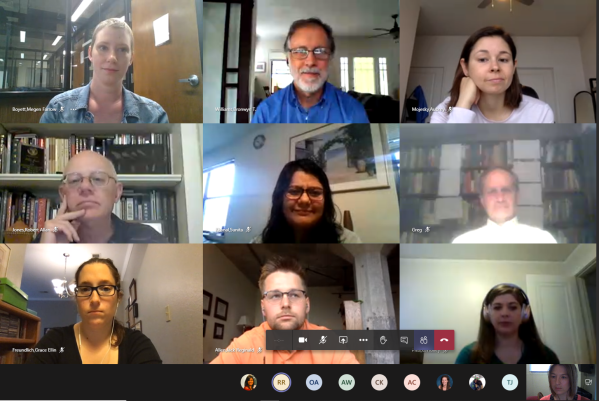



 student can be assisted. Every student has to write, and every kind of writing is welcome at the University Writing Center. But, given all the variables that come with working at a university of over 21,000 students, how does a writing center consultant prepare for their appointments?
student can be assisted. Every student has to write, and every kind of writing is welcome at the University Writing Center. But, given all the variables that come with working at a university of over 21,000 students, how does a writing center consultant prepare for their appointments?